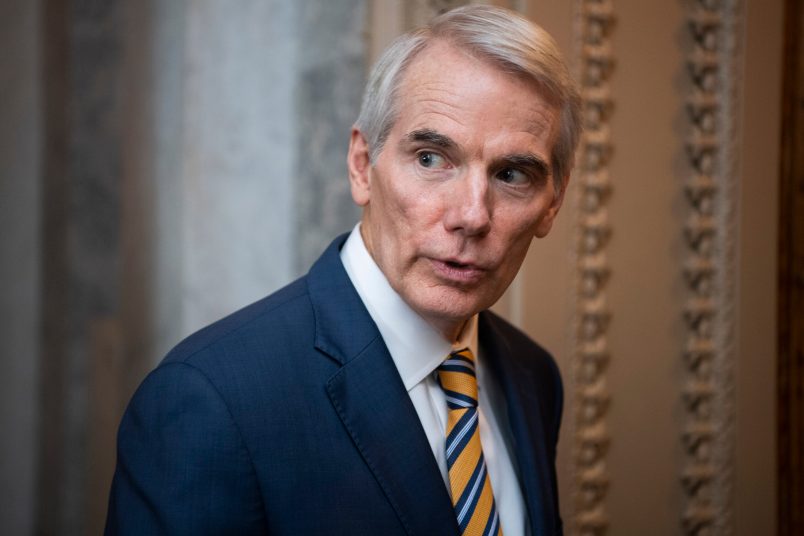The BIF may finally be here.
What’s in it?
From the vantage point of this writing, things look very similar to the way they did almost exactly one month ago, on June 24. On that day, a bipartisan group of senators stood outside the White House and toasted the fact that, in spite of their differences, representatives from our two parties had come together in the spirit of comity to agree on the outlines of an infrastructure deal.
“We now have an agreement on the major issues,” said Sen. Rob Portman (R-OH) on Wednesday.
“We came up with a good compromise,” the same senator said on June 24, referring to the same deal.
Today’s agreement differs in part because it sets the stage for a key procedural vote that will allow the Senate to open debate on the legislation.
From there, it’s still a winding path to passage. The bill has yet to be written, and amendments could still be added.
But it’s something.
What’s notable is how little came out of the time spent on negotiating the bill. Since June 24, markedly little appears to have changed between the two agreements.
The White House released a fact sheet on June 24 which summarized that deal, and released one Wednesday afternoon summarizing the results of a month of negotiation — a month that brought Democrats closer to the 2022 midterms, where they could lose their razor-thin margin of control in the House and Senate, and, with it, the ability to enact their priorities. Those extend well beyond the “hard” infrastructure included in the BIF to legislation strengthening the social safety net, confronting a wave of new restrictive voting laws, and addressing and preparing for climate change.
The top line price tag of of the June agreement included $579 billion in new money; that’s reportedly been whittled down by $29 billion to $550 billion. That’s a concession, but a relatively small one on the scale of the federal budget.
Ten billion of that is shaved off the legislation’s budget for mass transit, which initially contemplated $49 billion in spending and is now down to $39 billion. Mass transit funding was a sticking point in negotiations over the past month, with Sen. Tom Cotton (R-AR) loudly joking in a Senate hallway on Tuesday that Senate Majority Leader Chuck Schumer (D-NY) wanted to replace every subway rail in the Five Boroughs.
Actually, I asked if Chuck is going to gold-plate every rail in the NYC subway system. He’s asking for enough money to do that. https://t.co/uIgJ3vbbBf
— Tom Cotton (@SenTomCotton) July 27, 2021
Other elements of the post-negotiation bill remain nearly identical to the June agreement. Amtrak funding is the same; roads funding has changed to be $1 billion more. Funding for ports was trimmed by $8 billion, while funding for clean energy grids, water pipe upgrades, and broadband all remain the same.
So, what were they negotiating?
Part of it may have to do with the next step, the big omnibus bill that the Biden White House wants to be the biggest piece of legislation in decades: the reconciliation package.
Sen. Tom Carper (D-DE) issued a statement saying that that’s where the fight has moved.
“I fought tirelessly for improvements in the bipartisan package to get us to this point, and not all of what I sought was realized,” he said in the release, adding that he would “continue to fight for more to be done in our upcoming reconciliation bill.”
As news of the bipartisan agreement was released, Sen. Kyrsten Sinema (D-AZ) made waves by signaling her disapproval of the current $3.5 billion topline number for the reconciliation bill, suggesting that while she’s open to a second piece of legislation she won’t vote for one with that much spending.
All this underscores the point, however: Wednesday’s explosion of bipartisan bonhomie doesn’t seem to reflect the locus of action in policy. On the bipartisan bill, we’re in much the same place as a month ago.
Reconciliation is where the fight is.







“suggesting that
while she’s open to a second piece of legislation she won’t vote for one with that much spendingshe feels her self-centered antics of mugging for the camera and pretending to be a fiscal scold while fucking up the Democratic party’s efforts to help the American people has been a successful one FOR HER that she wishes to revisit upon the reconciliation bill”FUCK
SINEMA
AND
MANCHIN
Trollsten Sinema is so fucking tedious. And hideous too.
If behavior was the sole determiner of beauty on a scale of 1 to 10, she’d be a dog turd.
And Manchin would be horse manure.